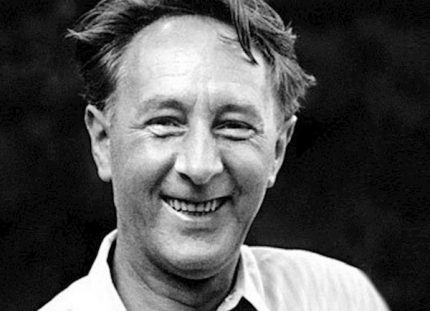Chicago Ensemble chills out with venturesome chamber program

It takes a dedicated chamber music fan to venture out in 13-degree weather for a concert of three rarities.
Yet Tuesday night’s bone-chilling temps did not prevent a more-than-respectable turnout for The Chicago Ensemble’s adventurous lineup at Fourth Presbyterian Church.
The first program of its 43rd season was emblematic of Gerald Rizzer’s venerable ensemble: an intriguing program, sturdy keyboard work by Rizzer and variable playing by the revolving roster of string players.
Paris in its golden age was the common thread for the program, which offered two early 20th-century works and one from the late 19th century.
Jean Françaix’s String Trio opened the evening. Written at age 21 and completed in 1932, the trio reflects the French composer’s precocity in writing fluent, tuneful, well-crafted music.
Violinist Jaime Gorgojo, violist Benton Wedge, and cellist Andrew Snow capably charted the contrasting moods of Francaix’s lightish suite, from the lively bustle of the opening Allegretto to the vigor of the Scherzo, and delightfully insistent finale. Gorgojo explored a nice vein of plaintive expression in the Andante but pitchy violin moments and errant intonation elsewhere underlined the trio’s Gallic refinement and charm.
Chicago Ensemble concerts are about the only place in the city one can ever hope to encounter music of Bohuslav Martinů. The Czech composer (1890-1959) was remarkably prolific, writing operas, six symphonies, twenty concertos, and a dizzying amount of chamber music including eight string quartets. Unlike many composers with such a vast output, his music is of a consistently high quality, and its continuing neglect is inexplicable.
The Piano Quartet No. 1, performed Tuesday night, is among Martinů’s masterworks. Written in 1941 at the start of his American exile, the quartet is richly characteristic, confidently written and balanced between piano and strings, and blending his neoclassical style with a lean lyricism and depth of expression that never turns sentimental.
Led by Rizzer’s spirited piano playing, the musicians put across the spiky angularity of the opening movement, the nervous energy perhaps reflecting something of the composer’s unsettled life in the early war years. The somber expression of the reflective Adagio was conveyed, though the music would have benefited from string playing of greater polish and sensitivity, not least in the threnody-like rising theme at the end of the movement.
There is a hopeful quality in the concluding Allegretto, though here the playing felt cautious and reined-in. Fitful roughness in the strings continued with ensemble threatening to become unglued under pressure. All credit to Rizzer for programming this excellent work but it was hard to avoid the feeling that we were getting only a partial portrait of its qualities in this somewhat effortful performance.
The evening closed with Ernest Chausson’s Piano Quartet in A major. While not entirely immaculate, Chausson’s lush score received the most polished playing of the evening. All of the players appeared in synch with the richly chromatic, Franckian style, with Rizzer’s handling of the rhapsodic keyboard part especially spirited.
The Chicago Ensemble’s next program features Barber’s Knoxville: Summer of 1915, Bernstein’s Clarinet Sonata, and Jack Gottlieb’s Downtown Blues for Uptown Halls. The lineup also includes three winners of the Discover America IX Competition: Alexander Timofeev’s Phoenix, Robert Cohen’s song-cycle Parable, and Michael Schelle’s Chords that Rhyme with your Eyes.
Concerts are 3 p.m. January 19, 2020 at UC’s International House, and 7:30 p.m. January 21 at Fourth Presbyterian Church. thechicagoensemble.org
Posted in Performances




